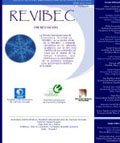El rol de las Áreas Naturales Periurbanas para la Resiliencia al Cambio Climático de las Metrópolis: El Caso de la Ciudad de México
Article Sidebar

Main Article Content
Rafael Calderón Contreras
Universidad Autónoma Metropolitana (México)
Metropolization is a dominant feature of the processes of urban growth worldwide. Furthermore, one of the main problems faced by the metropolis is climate change. In order to characterize the adaptation to climate change in the metropolis, recent literature has used the concept of resilience as a theoretical framework to understand the way in which a city is constituted as a Socio-Ecological System with the capability and the ability to resist the onslaught of climate change. The present article characterizes the relevance of Natural Protected Areas in the Metropolitan Area of the Valley of Mexico and its contribution to the overall resilience of the urban system. The article contains two main contributions, first, it uses the case of Mexico City to illustrate the way in which a metropolis can be understood as a socio-ecological system with potential and ability to resist the expected effects of climate change; and second, it characterizes the importance and the way in which the metropolitan Natural Protected Areas increase urban resilience.
Paraules clau
Resiliencia, Adaptación, Cambio Climático, Metropolización, Sistema Socio-Ecológico, México
Article Details
Com citar
Calderón Contreras, Rafael. “El rol de las Áreas Naturales Periurbanas para la Resiliencia al Cambio Climático de las Metrópolis: El Caso de la Ciudad de México”. Revibec: revista iberoamericana de economía ecológica, vol.VOL 25, pp. 69-79, https://raco.cat/index.php/Revibec/article/view/310591.